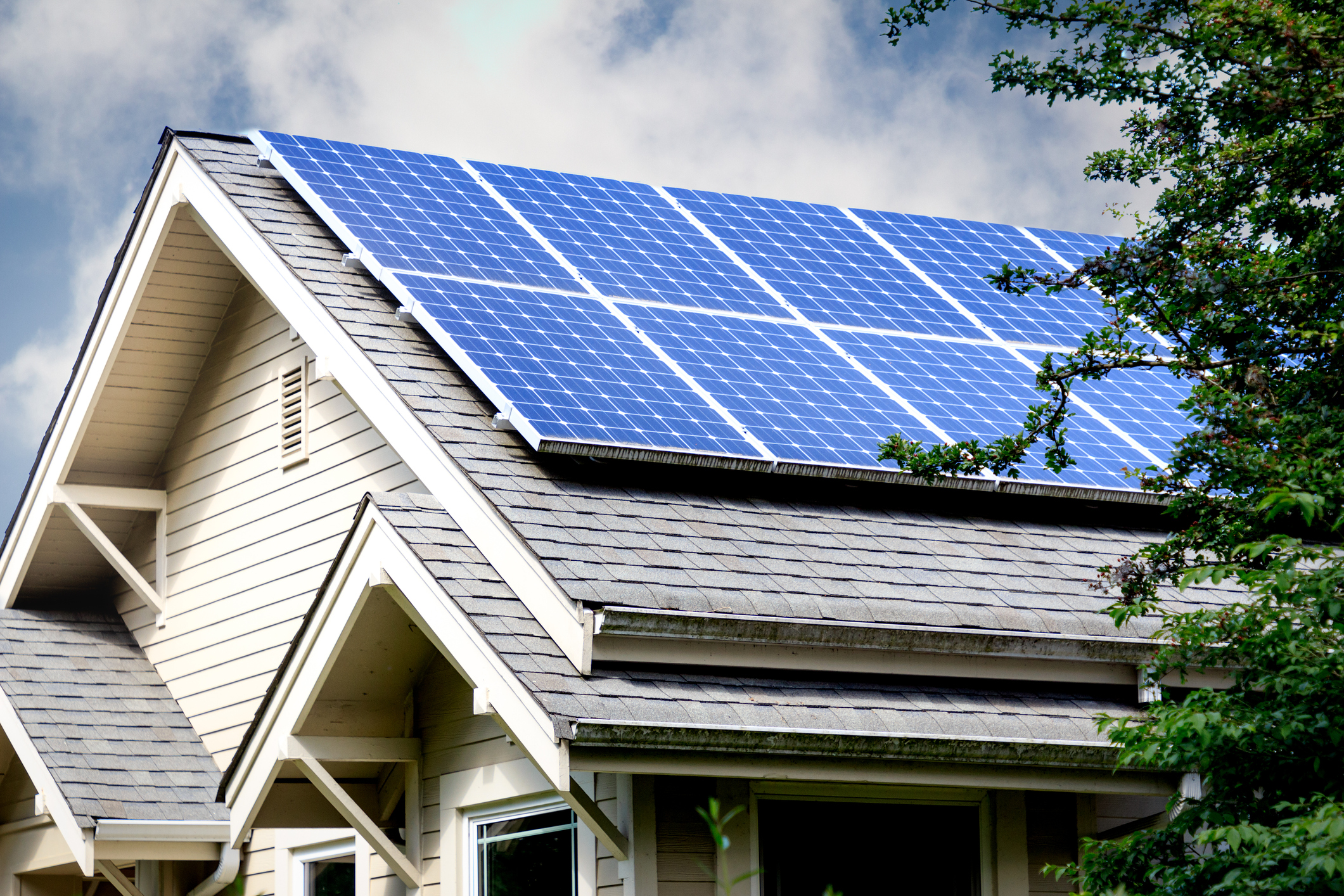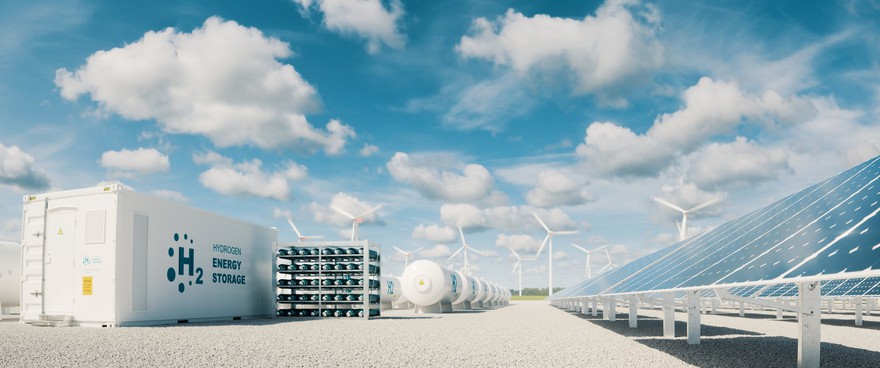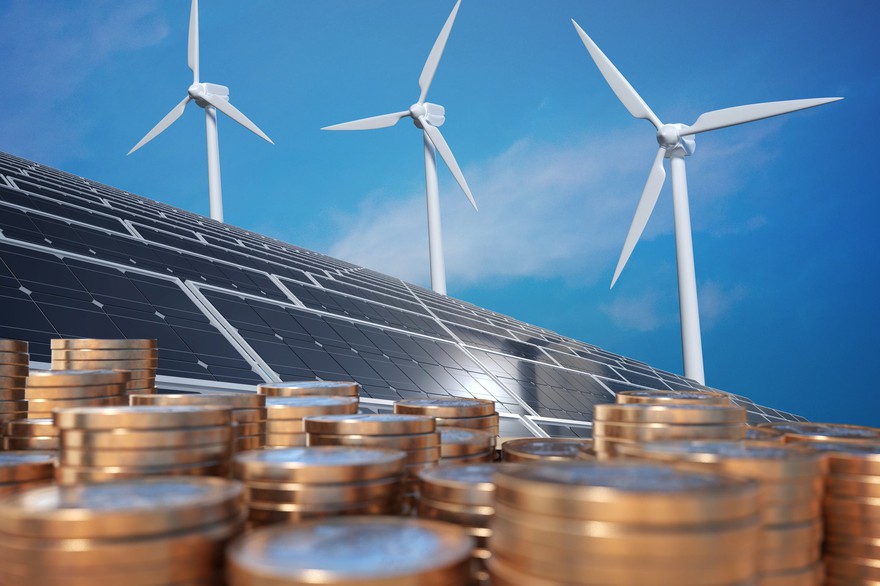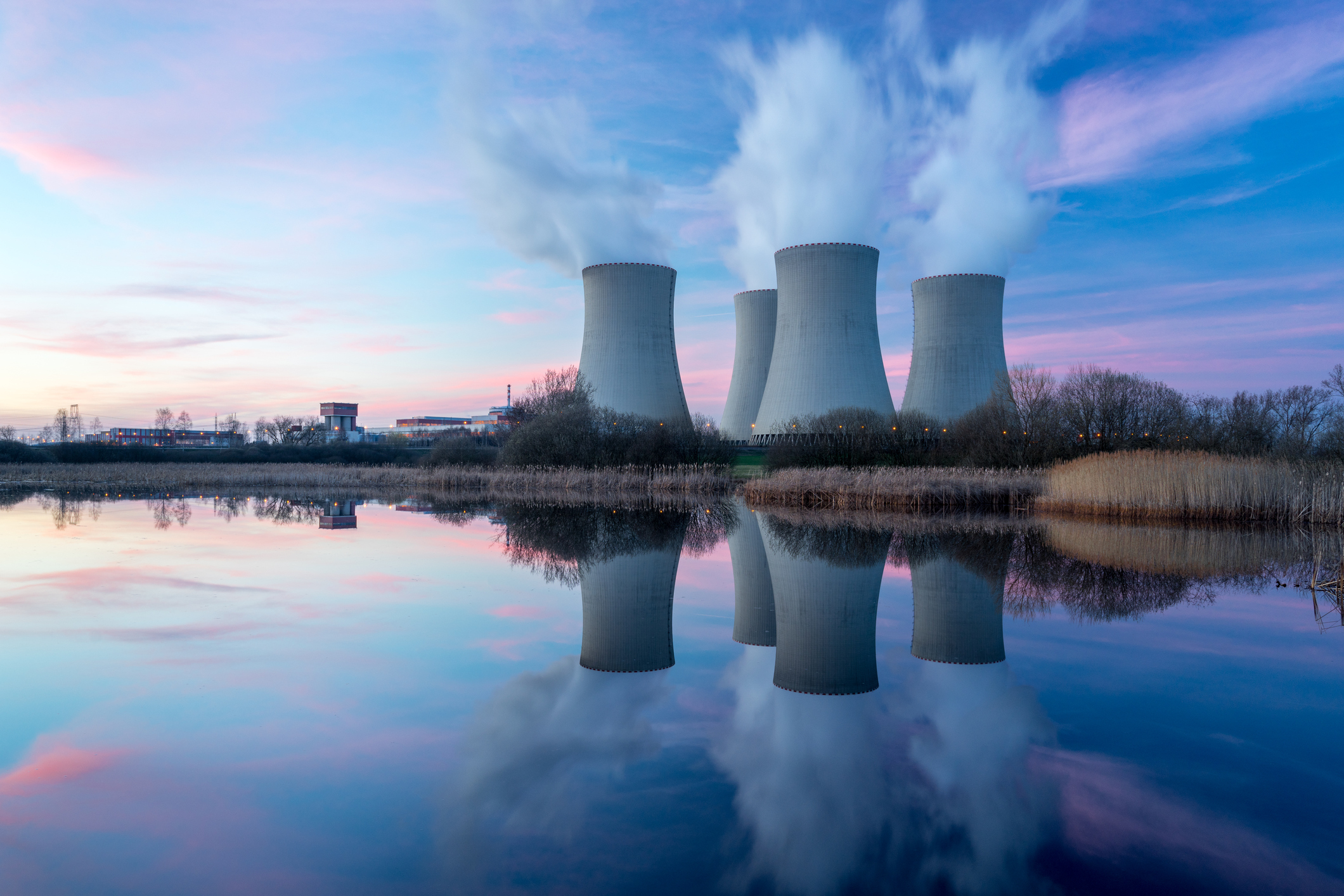The global economy is rapidly transitioning to new energy sources. Due to concerns about climate change, the world is shifting away from carbon-based fossil fuels to cleaner alternative energy sources, including renewable energy. The decarbonization of the global economy will take trillions of dollars in investment each year.
Renewable energy will play a crucial role in this energy transition. Here's a closer look at how to invest in the renewable energy industry.
Why invest in clean energy stocks?
Several catalysts are powering the renewable energy sector these days. Potential benefits of investing in clean energy stocks include:
- Growth: Renewable energy sources, such as wind and solar, are growing briskly, which should continue in the coming decades.
- Climate change concerns: Increasing climate change concerns are driving the need to accelerate efforts to rapidly decarbonize the economy. It's driving many companies, especially in the technology sector, to specifically buy power produced from renewable sources.
- Social responsibility: Many companies are making renewable investments to be viewed as socially responsible global citizens.
- Government support: Governments are working to accelerate global decarbonization by proposing and passing legislation to increase investment in the sector. Many view these spending packages as only a down payment on the investment needed to decarbonize the economy. The view suggests that future legislation could further boost the country's investment level.
- Dividend income: Many clean energy producers generate predictable cash flow because they sell the electricity they produce under long-term power purchase agreements (PPAs). That enables them to pay attractive dividends to their shareholders.
Five top renewable energy stocks in 2025
Many companies focus on renewable energy, putting them in an excellent position to benefit from this investment megatrend. However, a few energy companies stand out above their peers as the best renewable energy stocks to buy. Top-tier green energy companies include:
| Name and ticker | Market cap | Dividend yield | Industry |
|---|---|---|---|
| NextEra Energy (NYSE:NEE) | $173.0 billion | 2.64% | Electric Utilities |
| Brookfield Renewable (NYSE:BEPC) | $7.1 billion | 3.74% | Independent Power and Renewable Electricity Producers |
| Clearway Energy (NYSE:CWEN) | $3.6 billion | 5.72% | Independent Power and Renewable Electricity Producers |
| First Solar (NASDAQ:FSLR) | $24.3 billion | 0.00% | Semiconductors and Semiconductor Equipment |
| Constellation Energy (NASDAQ:CEG) | $112.1 billion | 0.42% | Electric Utilities |
Here's a closer look at these leading renewable energy stocks.
1. NextEra Energy

NYSE: NEE
Key Data Points
NextEra Energy (NEE -1.39%) is one of the world's largest producers of wind and solar energy. It generates power at its Florida utilities and its energy resources segment, the latter of which sells electricity under PPAs to other utilities and large corporate buyers.
Few companies are betting bigger on renewable energy than NextEra Energy. The utility's ambitious Real Zero plan aims to eliminate carbon emissions from its operations by 2045. It plans to significantly expand its solar energy and storage capacity while replacing natural gas in its power plants with green hydrogen and renewable natural gas.
NextEra has an excellent track record of creating shareholder value by investing in renewable energy. It has expanded its adjusted earnings per share (EPS) at a roughly 9% compound annual rate since 2004. Meanwhile, it has boosted its dividend at a 10% annual rate during that period, pushing its growth streak to more than 30 consecutive years.
The company expects its earnings to increase at or near the top end of its 6% to 8% annual target range through 2027. It also expects to deliver dividend growth of around 10% annually through at least 2026. That should give NextEra Energy the power to continue producing above-average total returns.
2. Brookfield Renewable

NYSE: BEP
Key Data Points
Brookfield Renewable (BEP -0.42%) is a global leader in renewable energy. It's one of the world's largest producers of hydroelectric power, which comprises almost half its portfolio. Brookfield also has been increasing its wind (onshore and offshore), solar (utility-scale and distributed generation, such as rooftop solar), and energy storage expertise. The company sells the bulk of its power under long-term PPAs that generate steady cash flow.
Brookfield has an excellent track record. It has increased its dividend payments at a 6% compound annual rate since 2001 while growing its funds from operations (FFO) per share at an 11% rate since 2016. The steady expansion of its portfolio through acquisitions and development projects has driven its growth.
Brookfield believes it can deliver more than 10% annual FFO per share growth over the next decade, powered by rising power prices, its extensive pipeline of renewable energy development projects, and additional acquisitions. The earnings growth should enable the company to hike its dividend by 5% to 9% annually -- making it one of the best renewable energy dividend stocks.
Carbon Credits
3. Clearway Energy

NYSE: CWEN
Key Data Points
4. First Solar

NASDAQ: FSLR
Key Data Points
First Solar (FSLR -1.54%) develops and manufactures thin-film solar panels that use their larger size to generate more energy than competing technologies, making them ideal for utility-scale solar energy projects.
As one of the world's leading solar panel makers, the company is in an excellent position as demand for solar panels accelerates. It's actively investing to increase its capacity to produce solar panels and meet demand. As of mid-2025, it had contracts in place to sell 64 gigawatts of panels through 2030, giving it significant visibility into future revenue.
First Solar has the means to continue expanding because it boasts one of the best balance sheets in the sector. Even with its heavy investments in building new manufacturing capacity, the company expects to end 2025 with $1.3 billion to $2 billion in net cash. The cushion gives it tremendous financial flexibility to continue expanding to capitalize on the increasing demand for solar panels. It has been building new manufacturing facilities to boost its production capacity.
Fiscal Quarter
5. Constellation Energy

NASDAQ: CEG
Key Data Points
Constellation Energy (CEG -2.43%) is the country's largest producer of carbon-free energy. That's largely due to its leading fleet of nuclear energy plants. The company also has a diverse mix of hydro, wind, and solar energy assets. Overall, Constellation powers more than 20 million homes and businesses, with 90% of its generation coming from carbon-free energy sources.
The company took a big step toward enhancing its already leading clean energy position in early 2025 by agreeing to acquire Calpine in a $26.6 billion deal. The transaction will create the country's largest clean energy provider, adding Calpine's natural gas, geothermal, and battery storage fleet to its portfolio. Those assets supply baseload power to help mitigate the intermittency of renewable energy.
The combined company expects to have ample opportunities to expand its clean energy capacity. Current and potential growth projects include nuclear energy restarts and renewals, solar plus battery storage projects, carbon capture and storage, and new natural gas capacity.
Related investing topics
Strong returns for investors
Climate change and socially responsible investing are major catalysts for the clean energy revolution. The trend will drive trillions of dollars of investment in renewable energy in the decades ahead.
Although the rising tide of clean energy should lift all boats, the top renewable energy stocks should generate some of the best returns for investors. Green energy companies that have already proven to be value creators and have the financial strength to capture opportunities should yield outsize total returns in the coming years.
FAQ
Expert Q & A
Expert Q&A on renewable energy
The Motley Fool got the chance to chat with investing expert Professor Priya Parrish of University of Chicago Booth School of Business. Here's what Parrish had to say about investing in the renewable energy realm.









